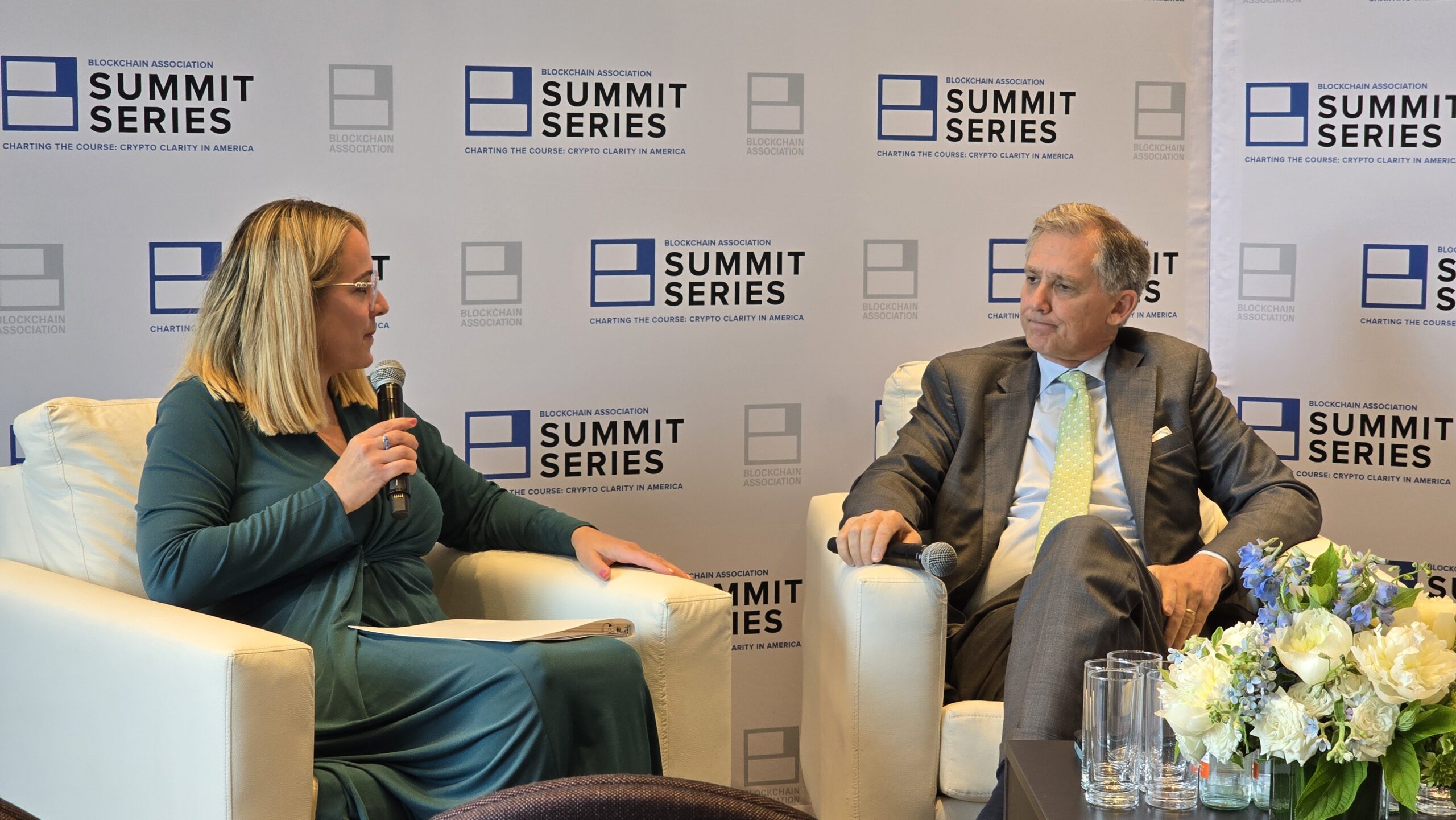At the Blockchain Association’s Summit Series in Washington, DC, Congressman French Hill (R-AR), a pivotal figure in financial services and digital asset regulation, outlined his vision for U.S. leadership in blockchain innovation. Below are the key themes from his discussion.
Regulatory Vision and Stablecoin Legislation
Congressman Hill emphasized the urgent need for regulatory clarity to foster trust in blockchain technology. He highlighted two critical legislative priorities:
- Stablecoin legislation: Establishes a federal framework for dollar-backed stablecoins, positioning the U.S. as a global leader in transparent, audited digital payments.
- Market structure bills: Define clear rules for custody, trading, and interoperability, addressing gaps that hinder institutional adoption.
Without these frameworks, Hill warned of regulatory uncertainty akin to the “Gary Gensler world,” where innovation is stifled by ambiguous enforcement.
Collaboration Between Traditional Finance and Fintech
Hill underscored the shift from early “disruption” rhetoric to collaborative partnerships between traditional financial institutions and blockchain innovators:
- Consumer-facing fintech advancements (e.g., payment efficiency, decentralized finance) have thrived through partnerships with banks.
- Distributed ledger technology (DLT) offers a programmable operating system for cost reduction and accuracy improvements, benefiting both incumbents and startups.
Legislative Progress and Challenges
Despite bipartisan support for the FIT Act (Financial Innovation and Technology Act), Hill acknowledged hurdles:
- The House advanced market structure bills with 71 Democratic votes in 2024, signaling growing cross-party consensus.
- Stablecoin legislation faces complexities, including balancing state/federal roles and addressing administration concerns.
- Inter-committee collaboration (e.g., House Financial Services and Agriculture Committees) has been critical, mirroring past successes in derivatives regulation.
Hill urged advocates to maintain momentum, stressing that “permanent statutory changes” are essential to avoid regulatory whiplash.
Personal Motivation and Future Outlook
A self-described “technology disruptor,” Hill shared his enthusiasm for DLT’s programmability and potential to:
- Reduce systemic costs and inefficiencies.
- Empower developers to build solutions for institutional and retail users alike.
- Preserve U.S. leadership in global finance through rule-of-law advantages.
Conclusion
Congressman Hill’s remarks reflect a pragmatic yet optimistic roadmap for crypto regulation. By combining stablecoin safeguards with flexible market structures, the U.S. can unlock blockchain’s potential while maintaining its competitive edge. The Summit Series continues to highlight the collaborative efforts needed to turn this vision into reality.
For more information, please visit the following:
Website: https://www.josephraczynski.com/
Blog: https://JTConsultingMedia.com/
Podcast: https://techsnippetstoday.buzzsprout.com
LinkedIn: https://www.linkedin.com/in/joerazz/


Leave a Reply
You must be logged in to post a comment.